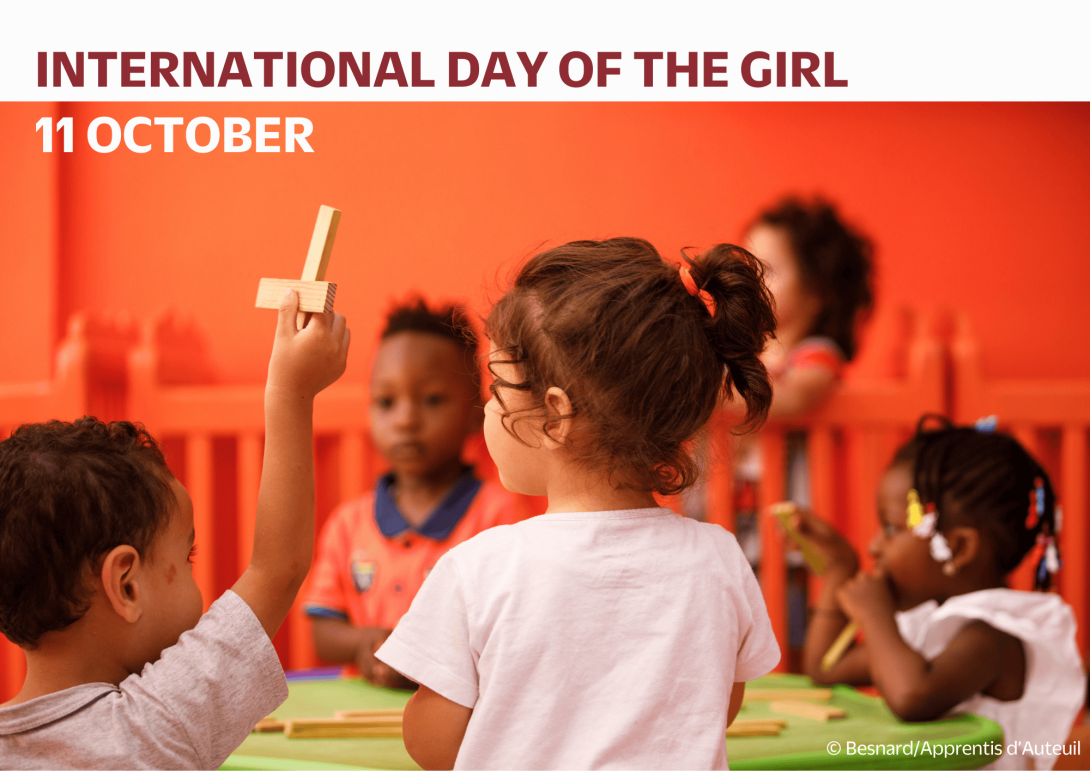

Every 11 October, we celebrate the International Day of the Girl Child to highlight the particular inequalities and specific challenges faced by girls and young women. They represent 50% of the world's population, yet they are all too often forgotten and particularly subjected to violence. Young girls in vulnerable situations suffer serious discrimination that prevents them from accessing their rights. 122 million girls are currently out of school, and every 10 minutes, a young girl dies as a result of violences. How can we support them in developing their skills and realising their dreams? Access to education and addressing violence are two key actions to achieve this.
Access to education and training to build a future
For many young girls, access to education is difficult, if not impossible, simply because they are born girls. Cultural traditions, early or forced marriages and teenage pregnancies are considerable obstacles to their access to education. In response, our partners provide socio-educational support to ensure they can attend school and, more importantly, stay in school. At the Dora centre in Beirut for example, the educational teams of our partner the Sœurs du Bon Pasteur provide assistance to young girls, ensuring they can study in good conditions. Thanks to the support provided by the social worker and psychologist the girls can look to the future: “To relax, I write poems, dance and play football, but my dream is to become a neurologist or astrophysicist”, says Mary, a young girl supported at the centre. The social worker also works with the parents, particularly the mothers, as support for families is essential to ensure that their daughters have access to their rights.
We also run projects to provide direct support to families and mothers in isolated and vulnerable situations. For example, our partner 100% Mamans in Morocco supports single mothers in their professional reintegration so they can provide for their children. The association also supports young sub-Saharan migrant women, helping them to regularise their situation and gain access to self-employment training: “It was the training that helped me to manage my difficulties. Today, I'm doing just fine”, explains Dina, a mother of three children.
Fighting vulnerability and violence
Both mothers and daughters are particularly affected by violence, whether physical, verbal or psychological. This particularly affects young girls' ability to continue their education. To address this situation, they receive educational, psychological and social support: our partners provide emergency accommodation, educational and psychological support, as well as work with their parents, as the violence occurs within the family sphere. By working with the families, we not only ensure the girls' safety, but also prevent them from dropping out of school, breaking up with their families or even ending up in street situations.
Our partners working with a particular gender-based approach are helping to empower young girls and build their future. It is vital to show them that, with the right support, it is possible to overcome difficulties and pursue their dreams. “I hope I'll have the chance to continue my studies at university and go into medicine”, says Laeticia, supported by the Sœurs du Bon Pasteur in Lebanon. Together, let's continue to support girls and women, because they deserve a future.
1UNESCO, 2023, https://www.unesco.org/fr/articles/ce-que-les-nouvelles-donnees-de-lunesco-revelent-sur-les-progres-en-matiere-dacces-des-filles
2UNICEF, 2014, https://www.unicef.ch/sites/default/files/2018-08/a_statistical_snapshot_of_violence_against_adolescent_girls.pdf